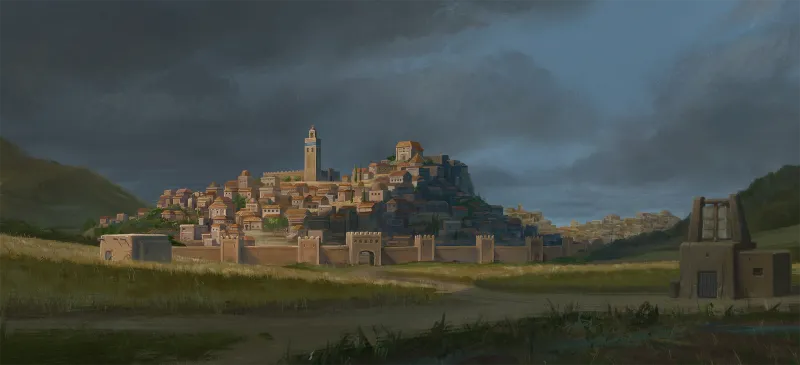Visigothic Culture

Commands
The following command will set your culture to 'Visigothic.'
The following command will change the culture of the specified county to 'Visigothic.'
Information
| Name | Visigothic |
| Culture ID | visigothic |
| Heritage | Iberian |
| Ethos | Bellicose |
| Language | Iberian Vulgar |
| Architecture | Iberian |
| Fashion | Iberian |
| Coat of Arms | Iberian |
| Military Equipment | Iberian |
Overview
The Visigothic culture was shaped by the Visigoths, a Germanic people whose dominion, following the fall of the Roman Empire, spanned across areas now recognized as parts of Western and Southern Europe. They epitomize the intricate cultural dynamics of the Early Middle Ages, revealing a strategically adaptive juxtaposition of Germanic customs with Romano-Hispanic tradition, the dominant cultural framework of their regions.
Architecture constituted a significant cultural element, with the remains of churches and other buildings serving as potent symbols of Visigothic influence. The Visigothic architecture was richly distinctive, with opulent interiors featuring lavish stone carvings and complex mosaics, mirroring a synthesis of Romanesque and Gothic styles.
Their legal systems, profoundly influenced by Roman jurisprudence, were not just guidelines for societal norms; they also embodied the Visigothic cultural nuances. The Codex Revisus, one of their finest legal productions, mirrored their adaptation and absorption of the once pervasive Romanizing influence.
Visigothic artistic tradition, enriched with naturalistic symbolism and biblical themes, was manifest in their metal works, sculptures, relief work on ivory, and manuscript illuminations.
Though the Visigothic kingdom crumbled in 711 AD, their influence persisted through generations, testifying to a rich cultural legacy. The Visigothic culture serves as an eloquent illustration of a civilization's resilience and adaptability in the face of immense socio-political changes.
Bellicose Ethos

Bellicose Ethos
This culture considers conflict and violence to be necessary states of existence; ingrained in its people is the idea that one should stand up and fight for their own.
- +50% Available Mercenary Companies
- +2 Prowess
- -10% Men-at-Arms Recruitment Cost
- -10% Men-at-Arms Maintenance
- +10% Levy Size
Each culture will have an ethos, which represents the core values, principles and attitude towards life that the culture has. It also determines which court types are available for kingdoms and empires.
Visigothic Traditions
- Visigothic Codes
- Hit-and-Run Tacticians
- Martial Admiration
- Malleable Subjects with Fate of Iberia
- Ritualized Friendship with Fate of Iberia
Each culture will have several traditions, which represent the main customs of a culture and can grant various effects. A culture can have up to five traditions in the tribal era, with every additional era reached granting an additional slot for Traditions.
Visigothic Architecture
Iberian

Iberian Cultures
The following are the IDs of cultures that share the same heritage, Iberian, as the Visigothic culture:
| Culture | Culture ID | Ethos |
|---|---|---|
| Andalusian | andalusian | Ceremonious |
| Basque | basque | Egalitarian |
| Castilian | castilian | Bellicose |
| Catalan | catalan | Ceremonious |
| Portuguese | portuguese | Bellicose |
| Visigothic | visigothic | Bellicose |